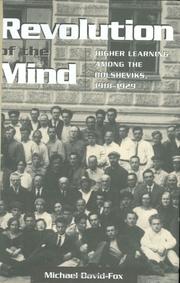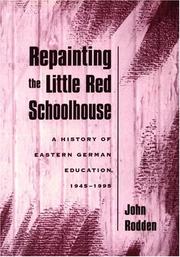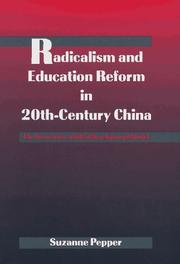| Listing 1 - 10 of 13 | << page >> |
Sort by
|
Book
Year: 2022 Publisher: London : Bloomsbury Academic,
Abstract | Keywords | Export | Availability | Bookmark
 Loading...
Loading...Choose an application
- Reference Manager
- EndNote
- RefWorks (Direct export to RefWorks)
Louis Althusser's thinking laid the groundwork for critical educational theory, yet it is often misunderstood in critical pedagogy, sociology of education, and related fields. In this open access book, David I. Backer reexamines Althusser's educational theory, specifically the claim that education is the most powerful ideological state apparatus in modern capitalist societies. He then presents this theory's flawed reception in critical educational research and draws out a lost tradition of educational thinking it inspired with important applications to race, gender, ideology, and the concept of social structure in education. Correcting the record about Althusser's thinking in the traditional narrative of critical educational research becomes an opportunity to revisit fundamental questions for thinking about school in its social context. For students and researchers of education, critical theory, sociology of education, and critical pedagogy, this book will be a resource for rethinking the social foundations of education, both as a field and as a set of theoretical frameworks for educational research. The eBook editions of this book are available open access under a CC BY-NC-ND 3.0 licence on bloomsburycollections.com.
Book
ISBN: 1787359840 1787359832 Year: 2023 Publisher: UCL Press
Abstract | Keywords | Export | Availability | Bookmark
 Loading...
Loading...Choose an application
- Reference Manager
- EndNote
- RefWorks (Direct export to RefWorks)
This is the first full-length study of the life and career of Brian Simon (1915-2002), leading Marxist intellectual and historian of education in twentieth-century Britain. Using documentary sources that have only recently become publicly available, it reveals the remarkably broad range of Simon's life as student, soldier and school teacher, Communist Party activist, and educational academic, campaigner and reformer. In a sympathetic biography that yet retains critical distance, the authors analyse Simon's contribution to Marxism and the Communist Party. They explore the influence of both on his work as a historian of education and trace the significance of his Marxist beliefs, political associations and historical approach to the cause of educational reform. In so doing, they consider the full nature and limitations of Simon's achievements in his struggle for education. Unlike many Marxist scholars he remained loyal to the Communist Party in the 1950s, which damaged his reputation as a public intellectual. Nevertheless, his support for comprehensive education helped to promote egalitarian educational reforms in Britain, although he was later unable to provide sufficient resistance to the 1988 Education Reform Act and to a decline in the position of the comprehensive schools. In all this, the significance of Simon's family, and especially his relationship with his wife Joan is to the fore. Joan and Brian forged a formidable 60-year partnership, in politics and the Communist Party as well as in life, that lasted until Brian's death in January 2002. Praise for Brian Simon and the Struggle for Education 'a very interesting book for historians of education and the best overall work about the thought and work of Brian Simon.' Historia y Memoria de la Educación
Book
ISBN: 3031466497 Year: 2024 Publisher: Cham : Springer International Publishing AG,
Abstract | Keywords | Export | Availability | Bookmark
 Loading...
Loading...Choose an application
- Reference Manager
- EndNote
- RefWorks (Direct export to RefWorks)
This book delves into the intersection of Marxism and education, exploring how Marxist theories can critique and transform academic institutions. It examines the impact of capitalism and political economy on both formal and informal education, highlighting how these forces shape universities and their communities. The work is part of an international series that encourages dialogue between Marxist traditions and other frameworks, aiming to rethink educational practices and policies. It targets scholars, educators, and activists interested in the dynamics of higher education and its potential for societal change.
Communism and education. --- Capitalism. --- Educació comunista --- Educació superior --- Política educativa --- Communism and education --- Capitalism
Book
ISBN: 1282758209 9786612758201 9814277061 Year: 2010 Publisher: Hackensack, N.J. : World Scientific,
Abstract | Keywords | Export | Availability | Bookmark
 Loading...
Loading...Choose an application
- Reference Manager
- EndNote
- RefWorks (Direct export to RefWorks)
This anthology, consisting of two volumes, is intended to equip background researchers, practitioners and students of international mathematics education with intimate knowledge of mathematics education in Russia. Volume I, entitled ""The History and Relevance of Russian Mathematics Education"", consists of several chapters written by distinguished authorities like Jeremy Kilpatrick and Bruce Vogeli. It examines the history of mathematics education in Russia and its relevance to mathematics education throughout the world. The second volume, entitled ""Programs and Practices"" will examine spec
Mathematics --- Communism and education --- Study and teaching --- History --- History.
Book
ISBN: 9798890860439 1945234784 Year: 2020 Publisher: The University of North Carolina Press
Abstract | Keywords | Export | Availability | Bookmark
 Loading...
Loading...Choose an application
- Reference Manager
- EndNote
- RefWorks (Direct export to RefWorks)
"For many militants on the left, an important part of their activities take place around publishing. Learning to use the mimeograph, hand out books, write articles, sell brochures, distribute loose sheets, among many other practices, have accompanied the left throughout its history. This work seeks to reconstruct a fragment of that past. In particular, it focuses on the challenges that Mexican Communist militants faced in the 1930s to push their own issues. In the different chapters, the reader will find everything from everyday aspects, government censorship, to transnational editorial dynamics, through disputes with anti-communism or the epic actions of militants who found in the printed matter a way to make the revolution. The subjects involved sought to endow "theory with practice". In short, this book analyzes, from a novel perspective, how that effort reconfigured not only their daily lives, but also the scope of their own political project"--
Communism and education --- Communication in politics --- Publishers and publishing --- Communism and mass media --- History. --- Political aspects
Book
ISBN: 9781501705397 1501705393 1501707175 9781501707179 Year: 1997 Publisher: Cornell University Press
Abstract | Keywords | Export | Availability | Bookmark
 Loading...
Loading...Choose an application
- Reference Manager
- EndNote
- RefWorks (Direct export to RefWorks)
Using archival materials never previously accessible to Western scholars, Michael David-Fox analyzes Bolshevik Party educational and research initiatives in higher learning after 1917. His fresh consideration of the era of the New Economic Policy and cultural politics after the Revolution explains how new communist institutions rose to parallel and rival conventional higher learning from the Academy of Sciences to the universities. Beginning with the creation of the first party school by intellectuals on the island of Capri in 1909, David-Fox argues, the Bolshevik cultural project was tightly linked to party educational institutions. He provides the first account of the early history and politics of three major institutions founded after the Revolution: Sverdlov Communist University, where the quest to transform everyday life gripped the student movement; the Institute of Red Professors, where the Bolsheviks sought to train a new communist intellectual or red specialist; and the Communist Academy, headquarters for a planned, collectivist, proletarian science.
Communism and education. --- Education, Higher --- Communism and education --- Communism and culture --- History. --- Culture and communism --- Culture --- Education and communism --- Education --- College students --- Higher education --- Postsecondary education --- Universities and colleges --- education --- Institute of Red Professors --- Sverdlov Communist University --- New Economic Policy --- Academy of Sciences --- Bolshevism --- Bolshevik party --- Communist party --- Soviet Union

ISBN: 080143128X Year: 1997 Publisher: Ithaca, N. Y. London Cornell University Press
Abstract | Keywords | Export | Availability | Bookmark
 Loading...
Loading...Choose an application
- Reference Manager
- EndNote
- RefWorks (Direct export to RefWorks)
Education [Higher ] --- Soviet Union --- History --- Communism and education --- Communism and culture --- Education, Higher - Soviet Union - History. --- Communism and education - Soviet Union - History. --- Communism and culture - Soviet Union - History. --- Education, Higher --- Education --- Social Sciences --- History of Education --- History. --- Culture and communism --- Culture --- Education and communism --- College students --- Higher education --- Postsecondary education --- Universities and colleges

ISBN: 0197561101 0190283238 1280453664 0195344383 160256647X 9780195344387 9780195344387 9780195112443 019511244X 9781602566477 9786610453665 6610453667 019511244X Year: 2002 Publisher: Oxford, [England] ; New York, New York : Oxford University Press,
Abstract | Keywords | Export | Availability | Bookmark
 Loading...
Loading...Choose an application
- Reference Manager
- EndNote
- RefWorks (Direct export to RefWorks)
This study of East German education traces the full history of attempts to create a new Marxist nation by means of educational reform. It looks beyond education to encompass other related areas, and the historical narrative extends to post-GDR life.
Education --- Communism and education --- Educational change --- Education and communism --- Children --- Education, Primitive --- Education of children --- Human resource development --- Instruction --- Pedagogy --- Schooling --- Students --- Youth --- Civilization --- Learning and scholarship --- Mental discipline --- Schools --- Teaching --- Training --- History --- History.
Book
ISBN: 2810709300 2810703132 Year: 2019 Publisher: Toulouse : Presses universitaires du Midi,
Abstract | Keywords | Export | Availability | Bookmark
 Loading...
Loading...Choose an application
- Reference Manager
- EndNote
- RefWorks (Direct export to RefWorks)
Au lendemain de leur prise de pouvoir fin 1917, les bolcheviks lancent deux chantiers destinés à changer en profondeur l’école russe : la polytechnisation qui doit, dans la lignée des écrits de Marx et Engels, réconcilier instruction et travail à la production, et la prolétarisation qui doit favoriser les masses laborieuses dans l’accès aux études – une forme de discrimination positive. Les hésitations, puis la réaction et les bouleversements du stalinisme et de la guerre mettent entre parenthèses ces deux axes de la politique soviétique. Ils refont surface après 1953, alors que des débats sur l’enseignement reprennent dans la sphère publique. Successeur de Staline, Nikita Khrouchtchev impose une perestroïka (refondation) de l’école et de l’université qui vise autant l’avènement du communisme par le respect du travail physique et la promotion des ouvriers et des paysans, que la fin de l’agitation étudiante née suite au « Rapport secret » de 1956, et l’amélioration du recrutement dans certaines branches de la production industrielle et agricole, marquées par la diminution du travail forcé. Le 24 décembre 1958, après une vaste campagne officielle, est votée une loi destinée à « rapprocher l’école et la vie » – réactivation d’un slogan des années 1920. Mais derrière l’unanimité de façade, des désaccords ont vu le jour pendant sa discussion. Les acteurs de l’enseignement et de la recherche – responsables administratifs, pédagogues, universitaires, membres de l’Académie des sciences - ont pesé sur la réforme, atténuant sa dimension idéologique au profit d’une vision technocratique du projet soviétique. Comment s’est déroulé le processus de décision et comment s’explique le faible impact de la loi sur la démocratisation scolaire en URSS ? En quoi l’opposition à la réforme a-t-elle permis à des scientifiques influents de mettre en place des filières d’élite parallèles (« écoles spéciales », université de Novossibirsk), au nom d’un idéal de méritocratie savante ? Que…
Education and state --- Communist education --- Communism and education --- Educational change --- History --- Change, Educational --- Education change --- Education reform --- Educational reform --- Reform, Education --- School reform --- Educational planning --- Educational innovations --- Education and communism --- Education --- Education, Communist --- Education policy --- Educational policy --- State and education --- Social policy --- Endowment of research --- Government policy --- enseignement --- histoire --- réforme

ISBN: 0511584725 0511002262 9780511002267 0521496691 9780511584725 9780521496698 9780521778602 0521778603 Year: 1996 Publisher: Cambridge : Cambridge University Press,
Abstract | Keywords | Export | Availability | Bookmark
 Loading...
Loading...Choose an application
- Reference Manager
- EndNote
- RefWorks (Direct export to RefWorks)
In 1976, China's 'education revolution' was being hailed by foreign observers as an inspiration for all low-income countries. By 1980, the Chinese themselves had disavowed the experience, declaring it devoid of even a single redeeming virtue. This is the first comprehensive book to cover the whole sweep of twentieth-century Chinese education, and to provide a detailed study of what occurred in the countryside under the radical Maoist education experiments during the Cultural Revolution. The study of both pre- and post-1949 China provided the crucial historical perspective to distinguish continuities from innovations. Rather than the epitome of good or evil, China's educational experiences of the 1970s instead emerged as the most tumultuous episode in a long and contentious struggle to adapt Western ways for use in a non-Western society.
Education --- Educational change --- Communism and education --- School management and organization --- Administration, Educational --- Educational administration --- Inspection of schools --- Operation policies, School --- Policies, School operation --- School administration --- School inspection --- School operation policies --- School organization --- Schools --- Management --- Organization --- Education and communism --- History --- Inspection --- Management and organization --- China --- Arts and Humanities --- S14/0400 --- S14/0450 --- China: Education--Modern education: before 1949 (incl. Modern intellectual trends) --- China: Education--Contemporary education since 1949
| Listing 1 - 10 of 13 | << page >> |
Sort by
|

 Search
Search Feedback
Feedback About UniCat
About UniCat  Help
Help News
News